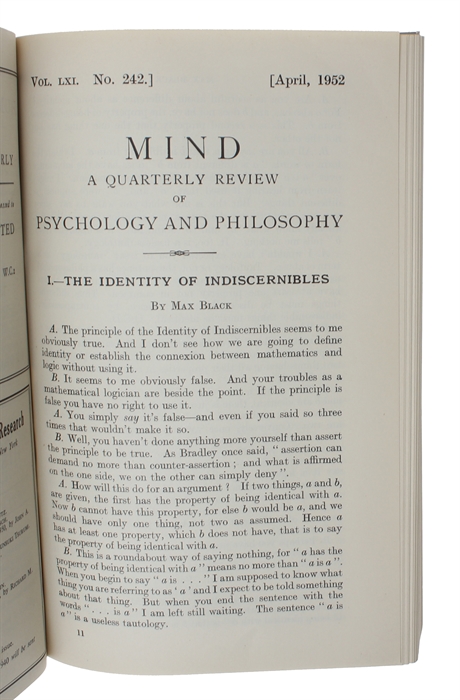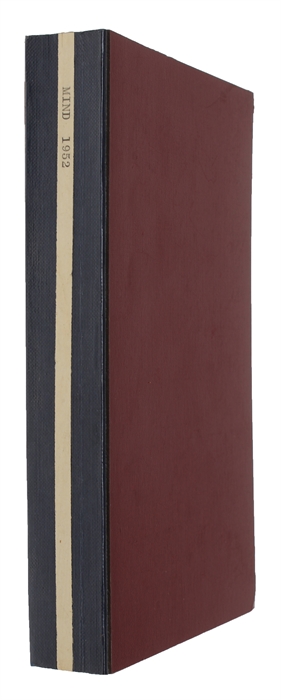THE IDENTITY OF INDISCERNIBLES
BLACK, MAX
Identity of Indiscernibles.
Edinburgh, Thomas Nelson & Sons, 1952
8vo. In contemporary red stiff cardboards. In "Mind", Vol. LXI. Fine and clean. Pp. 153-164. [Entire volume: VII, (1), 585, (7) pp.].
First edition of Max Black's seminal paper on The Identity of Indiscernibles. In this famous contribution to metaphysics Black presents an objection to Leibniz' Law by means of a hypothetical scenario in which he conceives two distinct spheres having exactly the same properties, thereby contradicting Leibniz' second principle in his formulation of "The Identity of Indescernibles". By virtue of there being two objects, albeit with identical properties, the existence of two objects, even in a void, denies their identicality.
"The Identity of Indiscernibles is a principle of analytic ontology first explicitly formulated by Wilhelm Gottfried Leibniz in his Discourse on Metaphysics, Section 9 (Loemker 1969: 308). It states that no two distinct things exactly resemble each other. This is often referred to as 'Leibniz's Law' and is typically understood to mean that no two objects have exactly the same properties. The Identity of Indiscernibles is of interest because it raises questions about the factors which individuate qualitatively identical objects. Recent work on the interpretation of quantum mechanics suggests that the principle fails in the quantum domain" (SEP).
Order-nr.: 48757


